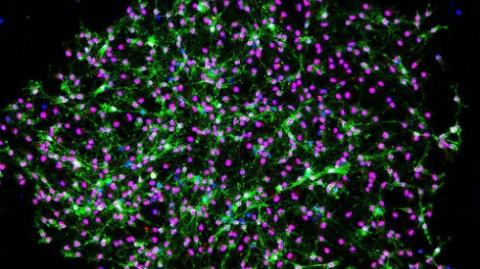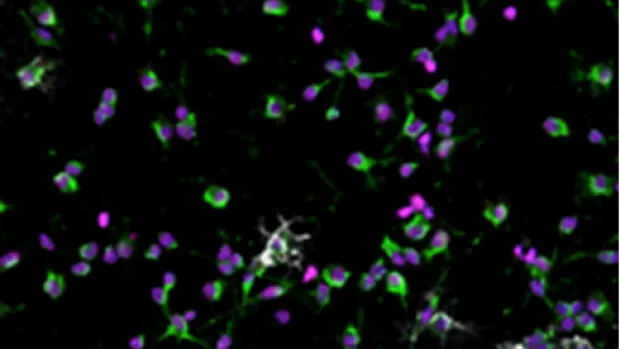Can we reprogram myelin making cells to improve regeneration?

- Lead researcher:
- Professor Robin Franklin
- Based at:
- University of Cambridge
- MS Society funding:
- £108,869
- Status:
- Complete
In MS, immune cells attack the protective myelin coating around our nerve cells. When myelin becomes damaged, messages find it harder to get through – or can’t get through at all – causing the symptoms of MS.
Our brains have a natural ability to regenerate myelin. This repair involves special myelin-making cells in the brain called oligodendrocytes. These cells are made from a type of stem cell found in our brains, called oligodendrocyte progenitor cells (OPCs).
But as we age, this regeneration happens less. Researchers think that this could be because OPCs become less responsive as they get older. In this project, our researchers will see if they can partially re-programme ageing OPCs, pushing the cells back to a younger state. They’ll then test whether this can help improve myelin regeneration in older rodents.
How will it help people with MS?
Our number one priority is to find treatments that can slow, stop or even reverse disability progression.
This project will help us understand more about what goes wrong with myelin repair in MS and help find new targets to fix it. While at an early stage, this project has the potential to both change the way we view MS and our approaches to treating it.
The difference you can make
We want everyone with MS to have access to effective treatments. With your help, we can continue to support vital research like this.



